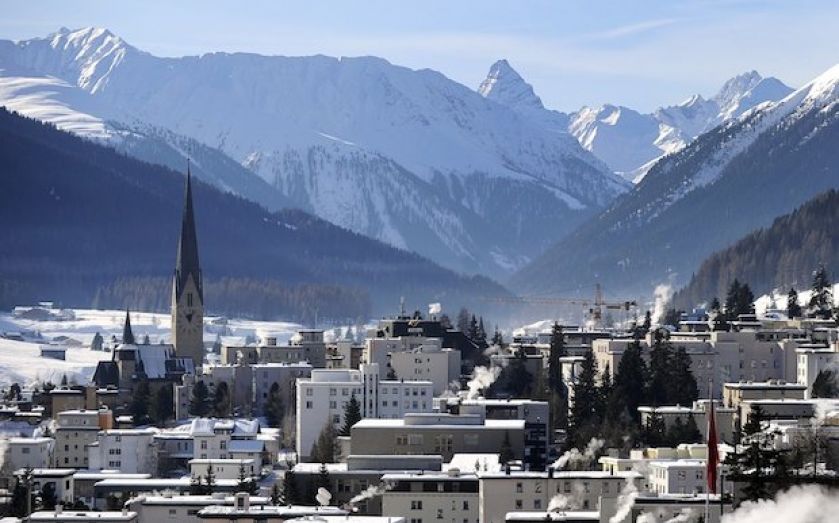The grandees of Davos 2014 may finally have a theme worth discussing

I’VE LEARNED a new word: heterarchy. I came across it buried in this year’s Davos theme. Apparently it means multiple structures, overlapping, interacting, connecting and networking. Am I really climbing a Swiss mountain to learn about an arcane corner of the dictionary?
The theme is set each year by the World Economic Forum (WEF), which officially begins today. It is invariably a bit of pretentious nonsense, designed to sum up what they hope we will focus on in our meetings in the Swiss Alps. This year its headline is The Reshaping of the World: Consequences for Society, Politics and Business.
Often the theme is overtaken by crises and economic fires, and everyone forgets all about it. But this year’s may have a little more staying power. In a further break from tradition, it may also make sense.
What it recognises is that, during five years of crises, massive changes have taken place simultaneously: the internet has forged its way into closed societies; social media has exploded; there has been a revolution in communication; new, powerful economies have emerged; there has been a fundamental shift in economic power to the East. In a short space of time, the accepted truths that have guided us since the end of the Second World War have gone up in smoke. As well as trumpeting that the immediate crisis is over, Davos will posit that we now need to think about what’s next – and how we will manage it.
The WEF has a point. This is not just about smartphones, blogging and Facebook. It’s about different ways of doing almost everything. The economic, social and cultural wreckage from the crises of the past five years is everywhere; in its wake is a landscape where old rules no longer exist and the new ones have yet to be written. Economically, central bankers own the world. Societally, a “lost generation” threatens cohesion. Culturally, the issue of privacy has leaped to the top of the agenda: from NSA-style data snooping by governments, to businesses like Facebook, Yahoo and Google (including its intriguing purchase of connected-device company Nest) thinking it’s fine to treat my information as their own – and to sell it on.
Davos works best in two clear situations: when there is a full-scale raging fire, and the big economic players come together and thrash it out (the Middle East, the Great Recession, and the Eurozone crises spring to mind); or when serious tectonic shifts are going on in economies and societies. Often the WEF’s grandiosity forces the issue beyond breaking point. But I don’t think this will happen this time. The issues are prescient, they are on everyone’s mind, we know that “times are different” and we are by no means sure how to handle them.
The question is whether those coming to Davos can set aside their own agendas, and think about the kind of world we are facing now that the long overdue recovery is taking hold. If they can do this, our trip up the Swiss mountain will have been worth it.
But this will require the grandees of Davos to practise what they preach and truly behave heterarchically.
Richard Quest is CNN’s international business correspondent. He will present Quest Means Business live from Davos daily at 9pm GMT on CNN International.